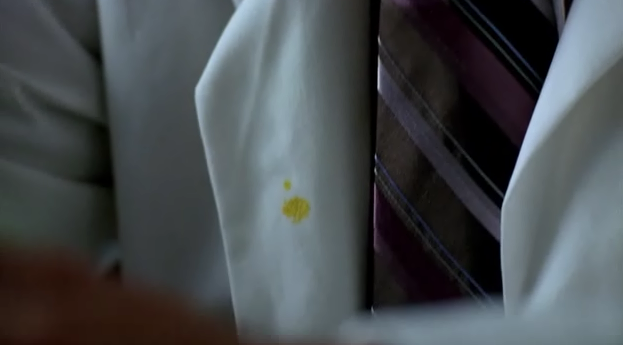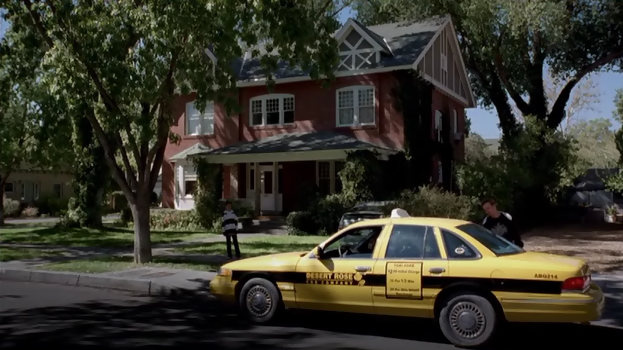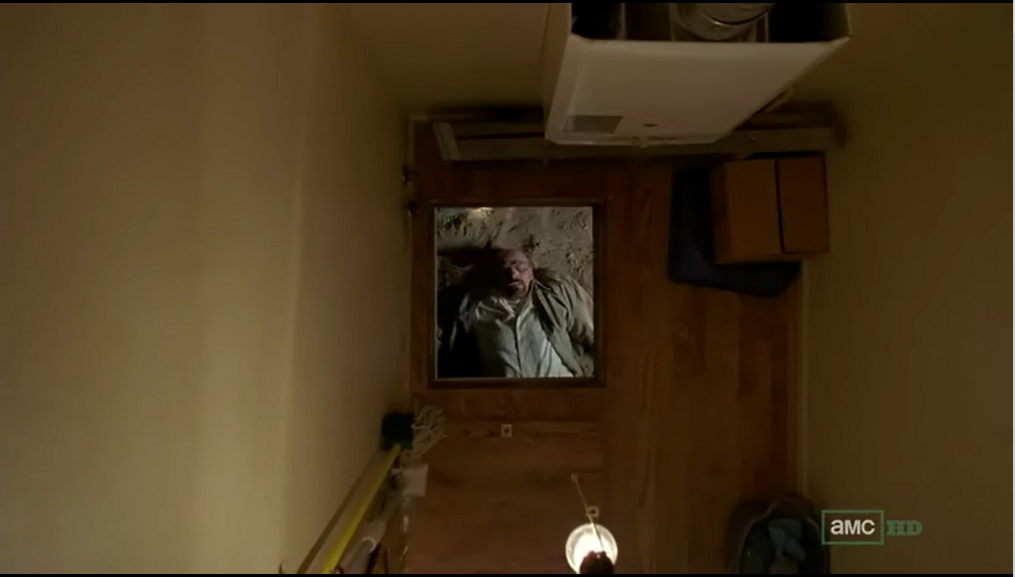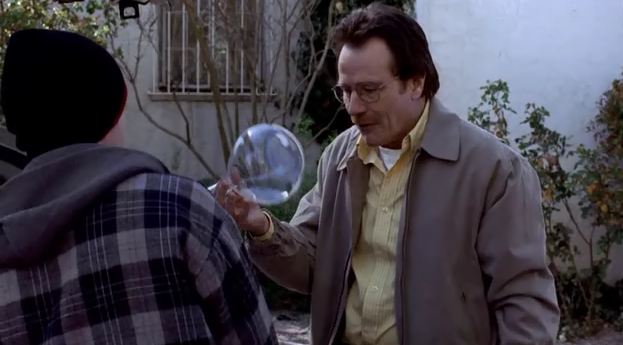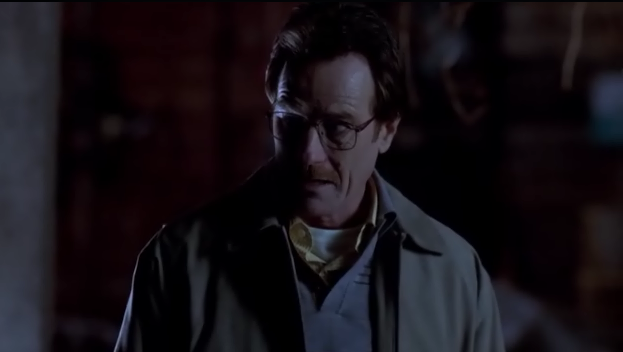Was re-watching a couple of Breaking Bad episodes last night, with no intention of writing anything about them (got all these jobs and like "real" people I've been spending my time with).
So, why all the books about horses? I feigntly recalled ready some hair-brained writings on the symbolic meaning of horses in BB, and quickly remembered this post I half-concocted a while back.
Diving into the multi-avenued rabbit hole of the bookcase in this episode, I decided to dive deeper into the other sequences, to see what other connections and messages were codified. Here's some of the notes I took while re(re)-watching the rest of the episode. Stuff got out of hand....
-Rabid Dog, point of no return, echo chamber.
Connection to "Caballo Sin Nombre"...in the cold open, all the horse books that are in the Schrader's house (sort of a Western homage, as well; but mostly that Biblical stuff, which also ties into "End Times" both in metaphor and in the crux of sacrificing family....the planter that once had the lilly of the valley in present, now barren, near the White pool.....Walter later reflects on the possibility of putting Jesse down near the pool (a different pool shows up in the Schwartz' place in "Felina" an episode that also calls back this episode (having Walter drink from a hose near the pumps, bringing back his bullshit story about the malfunctioning water hose; during this sequence he also leaves [this was credited by Gilligan as something they initially did to explain Walt's lack of a watch in the initial flash foward in 5x01, but says how it can also be read symbolically [END TIMES]; and also ties in Jesse and Skylar...Walt Junior).
Familia es Todo.
The cold open also calls back bicycles.... "Mandala" (again a spiral which contains recurrent themes and meaning), with Tomas, which later goes back to Half Measures, where Walt saves Jesse (he snorts meth off of a cd, which is also referenced in Rabid dog, Walt saving Jesse in that episode is, as I got at in this crazy post, echoed again in their final scene together, end times....when in RABID DOG, Jesse, with wire, goes to where Walt would be, the sequence also echoes the moment where he slowly walks up to the gangbangers...MAYBE A VIDEO WILL MAKE THIS CLEARER....also akin the the sequence at the end of ABIQUI, where he walks away from Tomas...again, bringing back Jane's speech about O'Keefe's repetiton of painting the same object, with different and more nuanced results....also like stuff with Gus, and when Walt walks to gus in the desert at the beginning of full measure...all linked....WHAT A FUCKING CRAZYINGLY TIGHT AND INTRICATE CLOCK WORK CINEMATOGRAPHY THIS SHOW HAS, more layers are revealed every time.... I re-watch an episode, or even re-watch a small scene...there's also the DANGER YELLOW in a post in the back ground...this scene of red herrings and periphera threats also ties back the the One Minute ending with hank in the parking lot)...the Civic center sequence also connects to the more light bench snafu that occurs in 2x08, better call saul.....
The civic center is mostly filled with the light blue color that has gained an ambiguous meaning throughout the show...meth and what not.... much more.
"I'm not doing what you want anymore"....so, at the end, when Jesse makes Walt tell him, "NOTHING HAPPENS until....YOU WANT THIS" it's his way of making sure he is merciful and doesn't kill Walt.
Right after the phone call, there's an ominous (and sorta heavy handed" ringing of a bell. What time is it....end times, baby! The statute of Ozymandia begings to fully crumble.
"I'm gonna hit you wher eyou really live" (Jesse has already started to plan the barrel of money sting [which is where Walt lives, and ya know, the barrels are sort of symbolic...really don't feel like I need to explain to anyone that's seen the series_
The end theme also incorporates the ringing of the bell...and ya know, ringing bells also have a pretty fucking huge significance in the show....end with the picture of the skull bell, Tio....2x02 grilled, which also brings in Hank....the linking of the three men...the writing on the show is obnoxiously brilliant...
The camcorder scene after the books also brings "Mr. White" an inescapable recurrence (eternal recurrence)
"He was my teacher" also brings up Todd, who says something similar at the beginning of Tahaijille, the episode where the dominos really start to fall...that also echoes
Photos of Taha are also seemngly in the hotel where the Whites stay, during the lady McBeth sequence.
"Civic plaza...we'll talk through everything once and for all...." the shakespearian moment "ROMEO AND JULIET" where things may have been resolved...but aren't....the continuity between the end camera movment and the beginning of the next episode...confessions...
MORE biblical connections "Mr. White...is the devil" Santa Satan...Jesse is just dyslexic
Meta commentary, "Whatever you think's gonna happen, I'll tell ya, the exact reverse opposite of that is gonna happen," unfortunately Jesse doesn't realize that statement is currently applying to himself.
Hank is aslo inadvertantly sealing his own fate through his hubris and manipulation (throughout the second half of the fifth season, Hank has been morphing into his own version of Heisenberg...so he sort of has it coming, kind of...same has been occurring to Marie and Skylar, as the scene in the hotel, and the therapist....untraceable poisions, a tie she would not be aware of at that point); when Jesse goes to take a piss, and Hank more or less tells Gomie that he doesn't care whether the "kid" lives or dies, dismissing him as an animalistic junkie, he is shot through prison bar like chair suff. Walt cares for Jesse, Hank doesn't. Hank forces Jesse into a spot where Walt desperately gets Jack involved. Jesse becomes a rat, going against his moral fiber; putting himself in a position where he becomes enslaved by Jack and crew, and loses Andrea....the karmic cycle is cemented in this episode.
"Pinkman is killed...we get it all on tape." As an out-of-focus image of Marie, cloaked in an innocent white bridal gown (with a splash of purple, obvily)....
ALSO TIE THIS BACK TO ONE MINUTE....where Hank is truly at his most heroic, also a moment tying the fates of Walt Hank Jesse and Gus, and the Cousins...CABALLO
Irony of the phrase "Civic Center"; also Ironic that in a show which either focused on the wide open expanses of the desert, or the confines of sterile meth labs, to have an incredibily pivotal scene take place in a spot like that.
In my slap-dash approach to scholarship, here's an explanation behind "death-bells" that I found on the Website "GradeSaver;" which is where I copied to Donne epigram from (the following explanation really jibed with what the series has to offer, and with Gilligan's religiosity, and with this blog's [and my philosophy] focus on vast inter-connectedness; so it's definitely pertinent, or something):
"In the Catholic tradition, all humanity is connected in the Body of Christ, and all are equal before God; in the Afterlife, there is no more male or female, Jew or Greek. The Bible states that “we are many parts, but we are all part of one body in Christ” and that “there should be no schism in the body; but that the members should have the same care one for another. And whether one member suffer, all the members suffer with it; or one member be honoured, all the members rejoice with it. Now ye are the body of Christ, and members in particular.”
The implication for the individual living on Earth is that he is part of a greater whole, such that the death-bell has deep and significant meaning for everyone who hears it. We are all in this life together and part of the same divine plan, so the bell does toll for the sake of all who have ears to hear it.
The toll for another’s death is also a reminder to the individual hearer to get his own affairs in order in the short time remaining before his own death. The civic-mindedness that comes from seeing oneself as part of a greater whole also provides direction for voluntary charity as an expression of spiritual devotion as one tries to live by divine standards."



